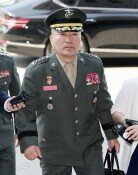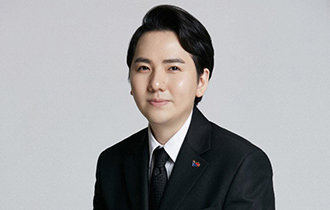[Editorial] Samsung Should Renovate Itself
[Editorial] Samsung Should Renovate Itself
Posted April. 18, 2008 03:21,
The special prosecutor for an investigation into the Samsung Groups alleged slush funds wrapped up his four-month investigation yesterday, indicting 10 former and current executives of the conglomerate, including Samsung Chairman Lee Kun-hee, for breach of trust and tax evasion. The speculation over Samsungs slush funds, claimed by the groups former in-house lawyer Kim Yong-chul at a press conference on Oct. 29 last year, reaped an achievement of proving that the chairman and the group were involved in the illicit transfer of management control of its affiliates. However, a significant portion of what Kim claimed was found not true or without evidence.
The special counsel came to a conclusion that the 4.5 trillion won managed in some 1,000 bank accounts under borrowed names is not slush funds but Lees private property. The speculation over the conglomerates illegal lobbying of politicians and bureaucrats was concluded as ungrounded because of some of Kims unclear arguments, lack of proofs and denial by those involved in the allegations.
There are mixed responses to the investigation outcome. While some say that the prosecutor did his best, others criticize that he in effect gave the group a kind of immunity. It might be true that, given the obstacle of obtaining proofs for such an old incident and the limitation of time and resources for the investigation, whoever was in charge of the probe, he or she could not have achieved more than that. However, it is also true that the prosecutor failed to completely clear up the allegations. Having said that, the prosecution can neither conduct another investigation nor start another special probe. Moreover, domestic and international economic situations cannot afford another consuming controversy over the issue.
Samsung was fortunate enough to fend off the worst-case scenario of the arrestment of key management figures, including its chairman. But it will suffer a considerable impact on its future management, as its international reputation has been greatly damaged. The group did not even complete its investment plan for this month, as its management was busy to comply with the questioning of the special prosecution team. However, it cannot blame others because the investigation was the result of its failure to break from the outdated decision-making process and shady dealings.
The management reform plan that the Samsung Group is set to release next week should include revolutionary measures for renovating itself as an ethical conglomerate through self-reflection and transparent management. With the spirit of a second foundation, the group should also introduce measures to significantly improve its management transparency befitting its reputation as a global corporation. Renovation in its senior management also seems to be inevitable to convince the public and market.
Samsung is Koreas leading conglomerate, which accounts for 20 percent of the national export and 25 percent of investment by the countrys top 600 companies. Samsungs success translates into Koreas achievement and its failure leads to Koreas underperformance. We believe that Samsung can turn around its current crisis and reposition itself as Koreas representative conglomerate and global corporation, only if it takes advantage of the special prosecution as an opportunity to eliminate its wrong practices and deep-rooted wrongdoing.
Headline News
- Gov’t faces criticism over policy reversals and decision-making processes
- Controversy erupts over ‘single life’ welfare packages
- Gov’t announces worker protection measures for heat waves
- Madonna wearing Kahlo’s items faces controversy over special treatment
- Pirates' Bae Ji-hwan pulls off a stunning come-from-behind victory







